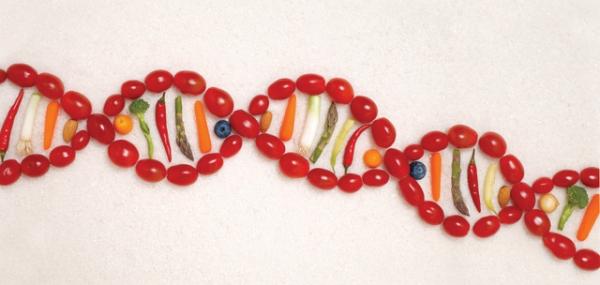
Most of us know that improving our eating habits will most likely improve our health. What most people may not know, however, is that the effects of poor eating habits persist long after dietary habits are improved.
In a new study published in the November 2014 issue of the Journal of Leukocyte Biology, scientists use mice to show that even after successful treatment of atherosclerosis (hardening of the arteries) — including lowering of blood cholesterol and a change in dietary habits — the effects of an unhealthy lifestyle still affect the way the immune system functions.
This change in immune function occurs largely because poor eating habits alter the way genes express themselves, including genes related to immunity, the researchers explain. In turn, the changes in gene expression — epigenetics (more on this a moment) — ultimately keep the risk of cardiovascular disorders higher than it would be had there been no exposure to unhealthy foods in the first place.
“I hope that this study demonstrates the importance of diet-induced changes in the epigenome and encourages further research into the interaction between dietary patterns, DNA methylation and disease,” said study co-author Erik van Kampen, from the Division of Biopharmaceutics at Leiden University’s Academic Center for Drug Research in The Netherlands.
Epigenetics, nutrition, and disease
To properly explain this fascinating research, let’s quickly run through some biology basics first. The human body is made up of roughly 37 trillion cells, our structural building blocks. The “brain” of the cell is called the nucleus, and the nucleus contains our DNA. For years, we’ve assumed that DNA was a product of our heritage, passed down from mother and father; as such, DNA was seen as a rigid pre-determinant of everything from our height to our mathematical skills.
However, the revolutionary new field of epigenetics has completely transformed that perspective with the discovery that what we do actually changes the way our DNA is used — that the choices we make can forever transform our genetic code.
This means that the way we interact with the world changes our DNA, not just the other way around. One of the major ways we can change our DNA is through our eating habits. For example, a study published in 2008 showed that exposing mice brains to as little as 6 hours of high blood sugar led to epigenetic changes that increased risk of vascular damage. These changes lasted even after 6 days of normal blood glucose, representing long-term damage after just a short blast of sugar.
The research on long-term genetic effects from short-term environmental exposures is at the core of epigenetics. This line of research was furthered by data from another 2008 study published in the journal Diabetes. In that work, researchers showed that short periods of high blood glucose led to worse long term vascular changes than did sustained high blood glucose (a scary thought for the carbohydrate binger). Again, the underlying mechanism seems to be modification of the cell’s DNA, leading to the extended duration of this effect.
DNA damage persisted despite modified diet
While it’s clear that poor eating habits can have long-term effects on DNA, it is not yet known whether these effects can be reversed with dietary changes. With that in mind, the Leiden University team developed a mouse model to determine if the epigenetic signatures associated with diet-related pathology are modifiable with dietary intervention.
The scientists used two groups of mice that had an altered gene making them more susceptible to developing high blood cholesterol and atherosclerosis. These mice were either fed a high-fat, high-cholesterol diet (Western-type diet, WTD) or a normal diet (chow). After a long period of feeding, bone marrow was isolated from the mice and transplanted into mice with a similar genetic background that had their own bone marrow destroyed.
The recipient mice were left on chow diet for several months, after which the development of atherosclerosis in the heart was measured. The number and status of immune cells throughout the body and epigenetic markings on the DNA in the bone marrow also were examined.
The results showed that DNA methylation, an epigenetic signature, in the bone marrow was different in mice that received bone marrow from the WTD-fed donors compared to the mice receiving bone marrow from chow-fed donors. Furthermore, these mice also exhibited marked differences in their immune systems as well as increased rates of atherosclerosis.
Epigenetic dietary interventions
“We’ve long known that lifestyle and nutrition could affect immune system function,” said John Wherry, Ph.D., Deputy Editor of the Journal of Leukocyte Biology. “The ability of nutritional history to have durable affects on immune cells demonstrated in this new report could have profound implications for treatment of diseases with immune underpinnings.”
Indeed, epigenetics has provided a revolutionary new framework for studying the prevention and treatment of a range of diseases such as cancer, heart disease, asthma, and dementia. By identifying the epigenetic links between environmental exposures and disease risk, researchers are uncovering entirely new pathways for disease prevention and intervention.
Although the research is still in its early stage, scientists have already identified a number of specific substances thought to be capable of slowing or even reversing DNA damage. For example, compounds like sulforaphane (found in broccoli), curcumin (found in turmeric), epigallocatechin gallate (found in green tea) and resveratrol (found in wine) have all been shown to offer protective benefits against DNA damage.
Studies suggest that the epigenetic activity of these chemicals serves a variety of purposes that help to reduce inflammation and potentially prevent cancer formation. Other research indicates they may also lower the risk of Parkinson’s Disease and cognitive decline, as well as slow the progression of Alzheimer’s disease. Most recently, researchers have discovered that eating sulforaphane-rich foods like broccoli, cabbage and sprouts may even help to improve some symptoms of autism.
